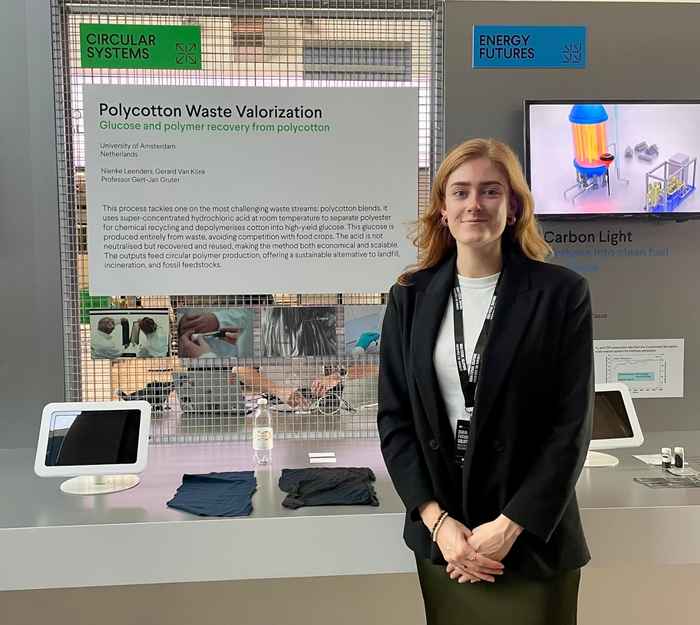Nienke Leenders at ‘Prototypes for Humanity’ meeting in Dubai
Presenting a solution for the recycling of polycotton textile waste
17 November 2025

Held until coming Thursday, the Prototypes for Humanity meeting assembles professors, recent graduates and students from more than 800 universities worldwide. They all have projects addressing pressing global challenges in fields such as health, environment, materials, energy, data, and agriculture.
Central to the meeting is an exhibition held at Emirates Towers, showcasing a hundred innovative projects that are considered this year's 'prototypes for humanity'. Nienke Leenders, who is now in the fourth year of her PhD, developed and optimised a process for the recycling of textile waste consisting of polycotton blends. It enables circular polymer production, offering a sustainable alternative to landfill or incineration, and replacing fossil feedstocks.
Economical and scalable
The process uses super-concentrated hydrochloric acid at room temperature to depolymerise cotton into high-yield glucose while separating the polyester for chemical recycling. The glucose is thus produced entirely from waste, avoiding competition with food crops. The acid is recovered and reused, making the method both economical and scalable.
With her contribution, Leenders also competes for $100,000 in prize money that will be presented to the students and lead professor behind each of the best solutions in five distinct categories.
Prototypes for Humanity is an initiative by the Art Dubai Group in partnership with the Dubai Future Foundation and Dubai Culture & Arts Authority, and supported by Dubai International Financial Centre (DIFC). It is held under the patronage of Princess Sheikha Latifa bint Mohammed bin Rashid Al Maktoum.